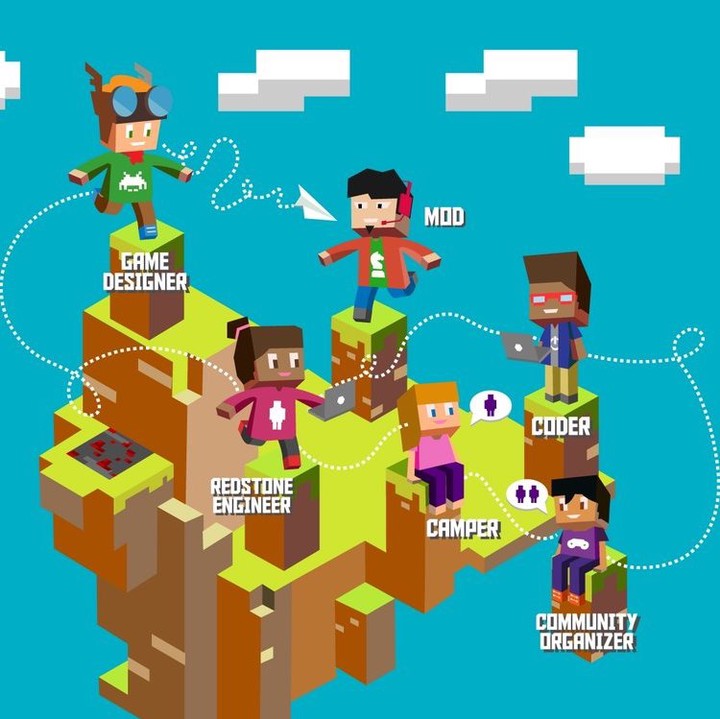Conflict resolution in Minecraft

Lead: Prof Katie Salen
This project investigates how multiple online games—such as Minecraft—can serve as powerful sites for youth social-emotional learning (e.g., conflict resolution and problem resolution skills). In other words, although these settings offer authentic contexts for encountering and resolving social conflict, little work thus far has explored how to help youth develop conflict-resolution skills by design interventions within online interest-driven settings. Through a series of long term research studies, supported by Connected Camps and Committee for Children, we have investigated how changes to online moderation techniques can drive youth self-empowerment and learning. This included 18 months ethnographic engagement to understand existing moderating practices (cf., CHI'18), as well as deploying a newly designed online programme that embeded the training directly into gameplay and observing the impact on child interactions over a 6 month period (cf., CSCW'20).
While the research above is only a first step toward answering the broad potential research agenda, our findings point to a set of socio-technical design approaches to youth-centered moderation and community governance that fosters youth interest, manages behavior, and supports personal growth in Minecraft-like online environments. More broadly, the studies offer a model of young people’s capacity for ownership and control of the mechanisms shaping the culture and climate of their online communities, while also supporting their personal growth and helping them develop the ability to problem solve with others.
The key idea of this project is that while multiplayer online games—such as Minecraft—can be plagued by inter-personal conflicts, they could also serve as powerful sites for youth learning.
Online multiplayer games like Minecraft, gaining increasing popularity among present-day youth, include rich contexts for social interactions but are also rife with interpersonal conflict among players. Research shows that a variety of socio-technical mechanisms (e.g., server rules, chat filters, use of in-game controls to ban players, etc.) aim to limit and/or eliminate social conflict in games like Minecraft. However, avoiding social conflict need not necessarily always be a useful approach. Broadly defined in CSCW literature as a phenomenon that may arise even amidst mutual cooperation, social conflict can yield positive outcomes depending on how it is managed (e.g.,[27]). In fact, the aforementioned approaches to avoid conflict may not be helpful as they do not help youth understand how to address similar interpersonal differences that may occur in other social settings. Furthermore, prior research has established the value of developing conflict-resolution skills during early adolescence within safe settings, such as school/after-school wellness and prevention interventions (e.g.,[2, 98]), for later success in any given interpersonal relationship. While games like Minecraft Drawing from prior literature in CSCW, youth wellness and prevention programs, we translated offline evidence-based strategies into the design of an online, after-school program that was run within a moderated Minecraft server. The online program, titled Survival Lab, was designed to promote problem-solving and conflict-resolution skills in youth (ages 8-14 years). We conducted a field study for six months (30 youth participants, four college-age moderators, and one high-school volunteer aged 15 years) using in-game observations and digital trace ethnographic approaches. Our study data reveals that participating youth created community norms and developed insightful solutions to conflicts in Survival Lab. Our research offers three key takeaways. Firstly, online social games like Minecraft lend themselves as feasible settings for the translation of offline evidence-based design strategies in promoting the development of conflict-resolution and other social competencies among youth. Secondly, the design features that support structured and unstructured play while enabling freedom of choice for youth to engage as teams and/or individuals are viable for collective or community-level outcomes. Third and finally, moderators, as caring adults and near-peer mentors, play a vital role in facilitating the development of conflict-resolution skills and interest-driven learning among youth. We discuss the implications of our research for translating offline design to online play-based settings as sites and conclude with recommendations for future work.